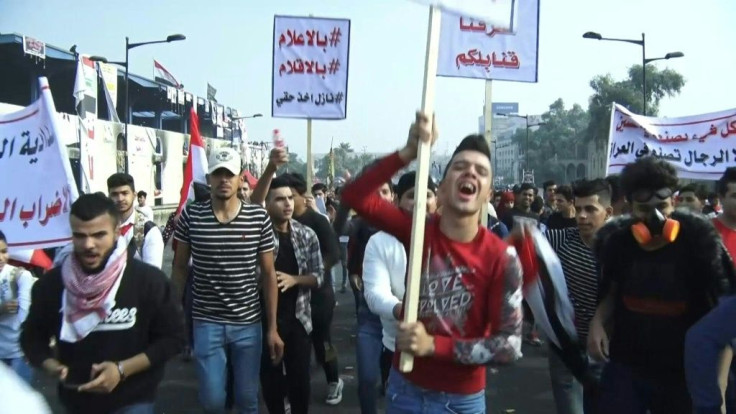Iran Protest 2019: Death Toll Rises After Clashes With Government Over Gas Prices

Amnesty International said Tuesday more than 100 protesters have been killed in protests in Iran triggered by the government’s decision to increase fuel prices, the result of U.S.-imposed sanctions that have strangled the economy.
Amnesty said it had received credible reports that at least 106 people – possibly as many as 200 -- in 21 cities had been killed. State media have acknowledged only a handful of deaths but said more than 1,000 protesters had been arrested, including human rights defender Sepideh Gholian.
Supreme Leader Ali Khameini has described the protesters as “villains” incited by counter-revolutionaries and foreign enemies. Iran’s Keyhan newspaper reported protest leaders could be executed by hanging.
Protests erupted Friday after the government announced it was hiking fuel prices at least 50%. An Iranian official told the Financial Times U.S. sanctions have cut crude sales to just 500,000 barrels a day, down from 2.8 million, squeezing its foreign exchange earnings and driving up prices for the 83 million people living in the country.
Iran, like many other Middle Eastern countries, had been subsidizing fuel pump prices, but increased domestic consumption has pushed the cost to $69 billion a year. The government said it would use the freed-up funds to provide cash payments to the poor.
Iran’s economy is expected to contract 9.5% this year, the International Monetary Fund has forecast.
The U.S. re-imposed sanctions on Iran after canceling U.S. participation in the Iran nuclear agreement.
Video footage showed firearms, water cannons and tear gas being used against largely peaceful protesters in more than 100 cities across Iran. The video depicted bullet casings left on the ground, indicating live ammunition was used by security forces. Witnesses told Amnesty snipers shot into crowds from rooftops.
Protesters used parked cars to block roads and a small number turned to stone-throwing and acts of arson and damage against banks and seminaries. The government shut down the internet Saturday, resulting in an information blackout inside the country. All mobile networks also have been disconnected, Amnesty said.
“Even if a small minority of protesters have resorted to violence, police must always exercise restraint and use no more force than is strictly necessary, proportionate and lawful in response to the violence they are facing. Violence by a few individuals does not justify a widespread reckless response,” said Philip Luther, research and advocacy director for the Middle East and North Africa at Amnesty International.
© Copyright IBTimes 2025. All rights reserved.






















